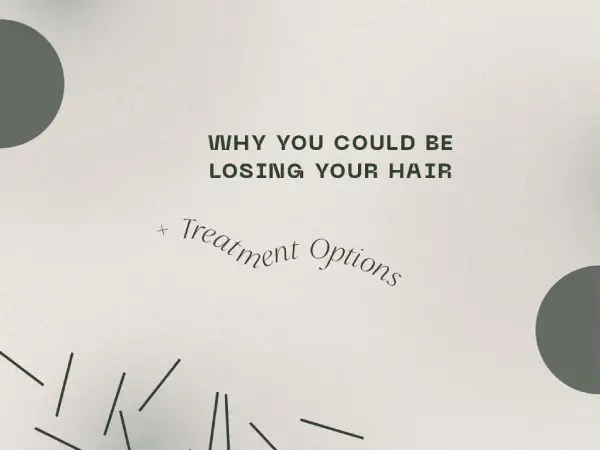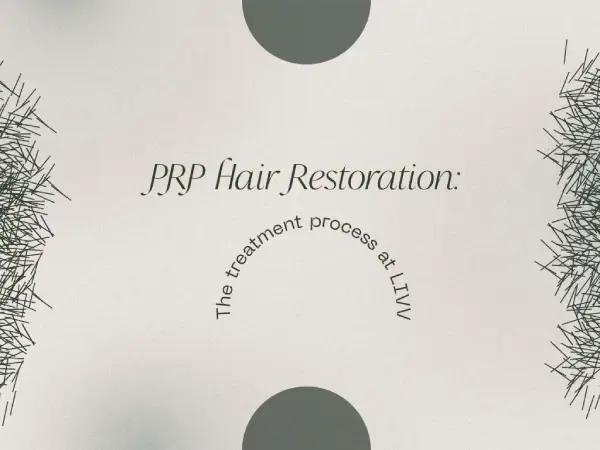Blog
Combating Hair Loss with PRP Hair Therapy

Are you worried about the visible patch of thinning hair?
You’re not alone.
Over 80 million people around the United States deal with Androgenetic alopecia (pattern baldness), a condition that truly affects a person’s self-esteem.
While balding isn’t considered life-threatening, the psychological and emotional toll it takes combined with feelings of unattractiveness can be devastating and shouldn’t be ignored.
But thanks to Platelet-rich plasma (PRP) hair treatment, hair loss need not be something you have to endure.
This minimally invasive natural therapy aids hair restoration for many patients, allowing them to enjoy fuller heads.
PRP Clinical Research
Whenever a person sustains a wound or a cut, platelets – a component of blood – act like “first responders.” They arrive at the scene, stop the bleeding and facilitate healing.
After years of study, researchers theorized that extracting a concentration of platelets and injecting them into a damaged part of your body could accelerate healing.
Since platelets contain growth factors that hasten tissue repair, PRP Injections were administered to treat ligaments, tendons, and fascia.
Researchers associate the androgenetic alopecia condition with the Androgen hormone Dihydrotestosterone (DHT), responsible for hair growth and libido.
Their findings proved that PRP hair treatment could facilitate considerable reduction in hair loss. As such, it became a workable treatment option for restoring hair growth.
Other Causes of Hair Loss
While hair loss is often associated with aging or the DHT (dihydrotestosterone) hormone, other factors can contribute to balding.
- Family genes. Hair loss tendencies on both sides of your family predispose you to balding. People inherit hair loss patterns from their parents. They can also inherit sensitivity to the DHT, which causes hair follicles to miniaturize and thin out.
- Diet: Consumption of foods that are low in essential nutrients denies your body the vitamins and minerals it needs to promote hair growth
- Smoking may restrict blood flow to your hair follicles, affecting the hair growth/loss cycle ultimately leading to hair loss.
- Prolonged periods of stress or chronic stress may cause temporary hair loss. During times of stress, your body produces the cortisol and noradrenaline hormones (in response to the stress) that prevent new hair growth.
- Pollution: Car exhaust fumes, pest control chemicals, smoke from cigarettes and open fires, and dust may trigger baldness.
- Exposure to too much sun causes dryness and brittleness, leading to breakage and a lifeless condition.
- Hormonal changes caused by pregnancy and childbirth, or menopause.
- Drugs that treat cancers, heart problems, high blood pressure, gout, arthritis, and depression may cause hair loss.
- Radiation therapy.
- Hot oil hair treatments may inflame the hair follicles leading to hair loss.
Best Candidates for PRP Therapy for Hair Loss
While many would like to experience new growth and thicker hair with PRP hair treatment, this therapy is not for everyone.
Ideal candidates include:
- People who are in the beginning stages of hair loss.
- Those experiencing thinning hair but have partially active hair follicles.
- People with small isolated areas of hair loss.
Does this mean that people with inactive hair follicles or advanced hair loss can’t undergo treatment? They can but will require more treatments and the results may take time to show.
People who shouldn’t attempt PRP hair treatment include:
- Those with an active scalp infection, facial or scalp skin cancers like melanoma, basal cell carcinoma, or squamous cell carcinoma.
- Anyone using immunosuppressive meds or blood thinners.
- People living with diabetes.
- HIV patients.
- Chemotherapy patients.
- Accutane patients or those recently off of Accutane.
Preparing for PRP Hair Treatment
Our team of PRP specialists will discuss the treatment process with you beforehand. They will cover topics like diet and hair care routines.
There are certain precautions you’ll need to take to minimize bleeding, bruising, and swelling following the injections.
Two weeks before your therapy, avoid foods like fish and fish oil, curcumin, nuts, and seeds. Replace those with well-balanced foods with plenty of vegetables and fruits
Also stay away from supplements, NSAIDs, and anything that usually prolongs bleeding.
Three days prior to treatment avoid alcohol, cigarettes and anti-inflammatory medication/treatment.
On the day of the therapy, have something to eat and drink before treatment to help combat the queasy feelings that people experience during treatment.
You can wash your hair, but avoid using any hair sprays, hair gels, and other topical hair products.
The procedure is fairly straightforward and takes about an hour to complete.
The doctor/technician will draw some blood from your arm and place it in a centrifuge to separate its components.
The platelets are then extracted and injected into targeted areas of your scalp.
You will then schedule your next session, each session is typically spaced four weeks apart.
If you’re on life-saving medication, it will be important to talk to your primary physician first to know if it’s safe for you to stop taking the medicine temporarily.
They will instruct you on when to stop and restart the meds.
Recovery following PRP Hair Injections
After the injection, some patients experience redness, bruising, swelling, tightness, or tingling for about two to five days. This is normal and will subside with each passing day.
Here’s what you should do after treatment:
- Drink plenty of water in the first week following treatment to promote healing.
- Avoid touching, pressing, or rubbing the treated area in the first eight hours of treatment.
- Use cold compresses on the treated area to reduce swelling. Avoid using ice on the treated area since ice acts as an anti-inflammatory and will counter the desired effect.
- Avoid Curcumin, Fish Oils, and Ibuprofen.
- Avoid inflammatory medication for one week after treatment. You can use 81mg aspirin and Advil to relieve pain and discomfort.
(The reason we recommend desisting from anti-inflammatory products is that inflammation is needed to promote regeneration and healing)
- Avoid vigorous exercises, exposing yourself to the sun, or going for saunas, hot tubs, or steam rooms in the first 48 hours after treatment. It may exacerbate swelling and bruising.
- Stay away from alcohol, caffeine, and nicotine products, in the first three days to promote healing and for better results.
PRP therapy is considered safe since it uses a patient’s own platelets for treatment.
If you experience severe pain that doesn’t respond to pain relievers, fever exceeding 101.5 degrees, or puss-like drainage contact us.
PRP Hair Treatment by LIVV Natural
Are you concerned about increasing baldness or hair thinning?
Our team of professional naturopathic doctors uses natural, non-surgical hair restoration methods to combat hair loss and guide your body to re-grow hair.
Go on and schedule an appointment with us today.
(619)840-6700


